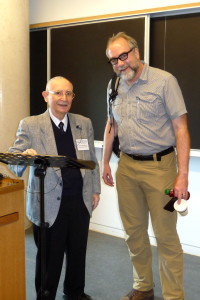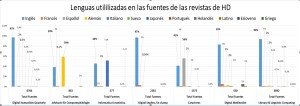The Globe and Mail and other sources are reporting that Computers in classroom have ‘mixed’ impact on learning. This is based on an OECD report titled Students, Computers and Learning: Making the Connection. The overall conclusion is that teaching is about the individual student and can’t be automated. Computers aren’t necessarily good for learning – they should be used for specific projects and used to teach real-world digital skills.
Students who use computers moderately at school tend to have somewhat better learning outcomes than students who use computers rarely. But students who use computers very frequently at school do a lot worse in most learning outcomes, even after accounting for social background and student demographics. (p. 3 of Report)
The Globe quotes Prof. Slotta of OISE to the effect that:
Technology is most effective in the classroom when it is used to develop skills similar to those that adults are using in everyday life, such as finding resources, critiquing arguments, communicating with peers, solving problems and working with data…
Skimming the report and the slide deck shows a complex picture where often countries like Japan have fewer computers in classrooms and do better on learning. Massive investment in computers like that of school boards who get laptops for every child doesn’t seem to lead to improvements in learning.
Put simply, ensuring that every child attains a baseline level of proficiency in reading and mathematics seems to do more to create equal opportunities in a digital world than can be achieved by expanding or subsidising access to high-tech devices and services. (p. 3 of Report)
The report also looked at loneliness and confirmed what parents have suspected,
Last but not least, most parents and teachers will not be surprised by the finding that students who spend more than six hours on line per weekday outside of school are particularly at risk of reporting that they feel lonely at school, and that they arrived late for school or skipped days of school in the two weeks prior to the PISA test.
The slide show prepared by Andreas Schleicher of the OECD suggest that there are larger questions about what sorts of skills should we be teaching in the coming age of automation. The second slide says “The kind of things that are easy to teach are now easy to automate, digitize or outsource.” A slide titled The Race between Technology and Education (title from work by Goldin and Katz) suggests that there is social pain when technology isn’t matched with education. The conclusion is that we need education for a world where many jobs can be automated. Just as the industrial revolution caused social pain in the form of dislocation and unemployment, so too could AI.


